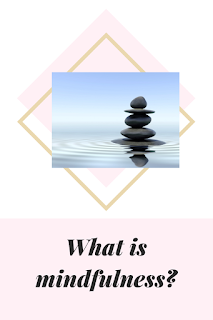Nowadays, due to the fast paced and information overload environment we live in, most of us operate under what we call the “autopilot mode”. It is a state in which we have a vague awareness of what is happening in the present moment, we are hardly aware of what is occurring around us (sounds, sights, smells, etc.) and what is occurring within us (physical, mental and emotional sensations). We do things without much thought, we behave in a mechanical way and we do so without awareness! This is what we call the "autopilot mode" and "Mindfulness" is the exact opposite of that!
Mindfulness is our ability to maintain moment by moment awareness of what is happening around us, and what is happening within us (our body sensations, feelings and thoughts)! It is simply being fully present in the current moment which allows us to have control over our emotions and in essence is the core of Emotional Intelligence. It helps us to pause, reflect then decide how to act, cultivating an awareness of changes in our emotional and physical sensations!
Jon Kabat-Zinn, the founder of Mindfulness Based Stress Reduction (MBSR), defines mindfulness as “paying attention in a particular way; on purpose, in the present moment, and non-judgmentally.”, so mindfulness is a decision that one takes! To decide to pay attention in a particular way, to observe what is happening around us and within us without judgement requires practice and commitment. It is a journey and the more we practice mindfulness and make it part of our daily lives, the more we become the non-judgmental observers of our patterns of thinking and emotions and as a result we become clearer on what action needs to be taken or not!
Mindfulness helps us cultivate a state of awareness, in which we are fully present in the moment and we learn to leave behind our tendency to judge a situation, circumstance, decision or person (which usually causes issues and conflicts). So, mindfulness gives us the freedom to respond rather than react, gives us the tools we need to step out of autopilot mode and think things through before we say or do something that we might regret!
There are many benefits of mindfulness, below are some of the scientifically tested ones:
Ø Increase in productivity and creativity
Ø Better sleep
Ø Increase in the level of focus
Ø Decrease in stress
Ø Decrease in anxiety
Ø May help treat depression
Ø Improves cognition
Ø Improves attention
Ø Help the brain reduce distractions
So where is mindfulness today?
Mindfulness programs were first developed in the 1970s. A Mindfulness based stress reduction program was developed at the University of Massachusetts Medical Center in the 1970s by Professor Jon Kabat-Zinn, MBSR uses a combination of mindfulness meditation, body awareness, yoga and exploration of patterns of behavior, thinking, feeling and action. And after that many other programs were developed such as MBCT (Mindfulness Based Cognitive therapy) which is a more focused therapy and is an approach to psychotherapy that uses CBT with mindfulness meditative practices. (developed to treat severe cases of depression and anxiety). Today mindfulness programs have gone beyond clinical work and therapy sessions, mindfulness programs are being applied in schools and at work. The UK, has now included mindfulness as part of their school curriculum and many companies such as Google, Linked-in to name a few are investing heavily in mindfulness programs.
Mindfulness is a way of living, a choice, a decision one takes towards his wellbeing, it allows us to feel and value what is important in life and provides us with the tools we need to live a happy and less stressed life! How mindful are you?
References
(https://www.nytimes.com/2019/02/04/world/europe/uk-mindfulness-children-school.html)
(https://www.bcg.com/publications/2018/unleashing-power-of-mindfulness-in-corporations.aspx)

Comments
Post a Comment